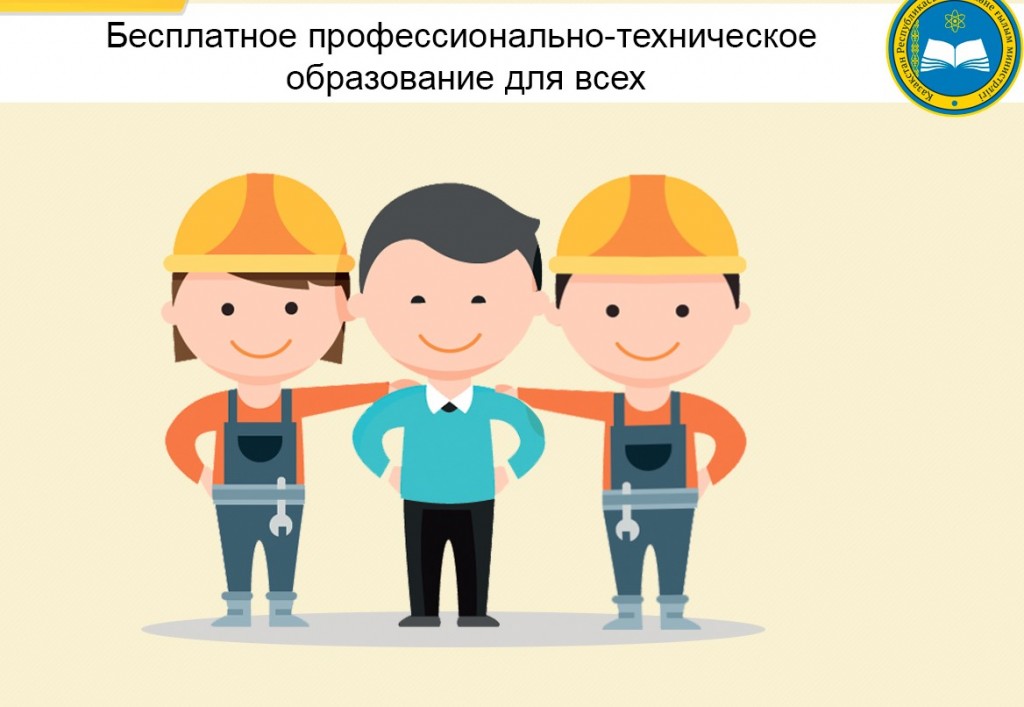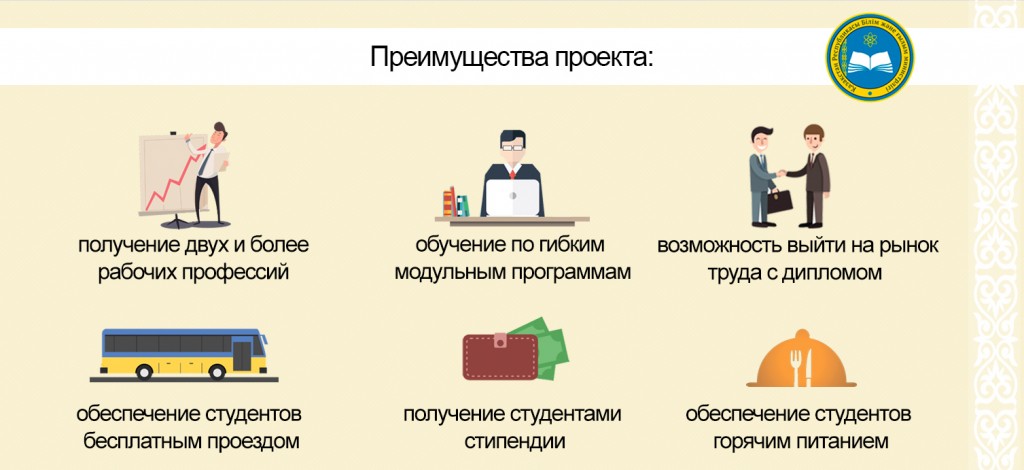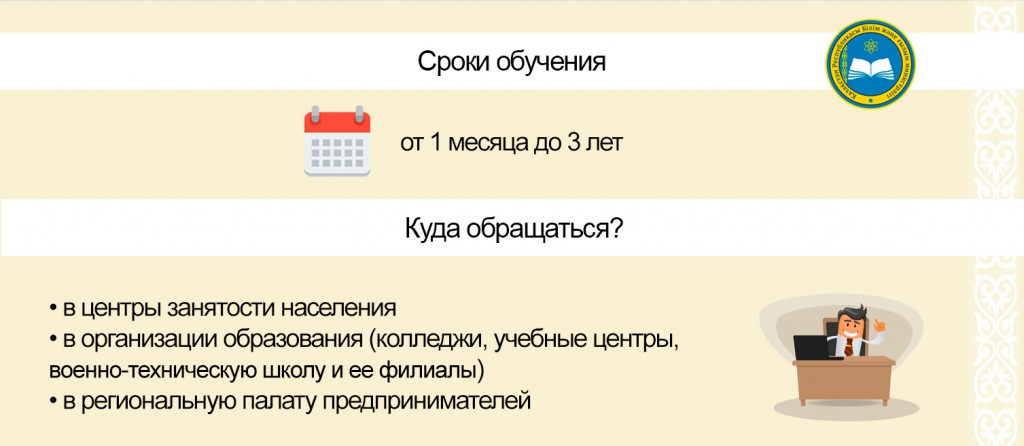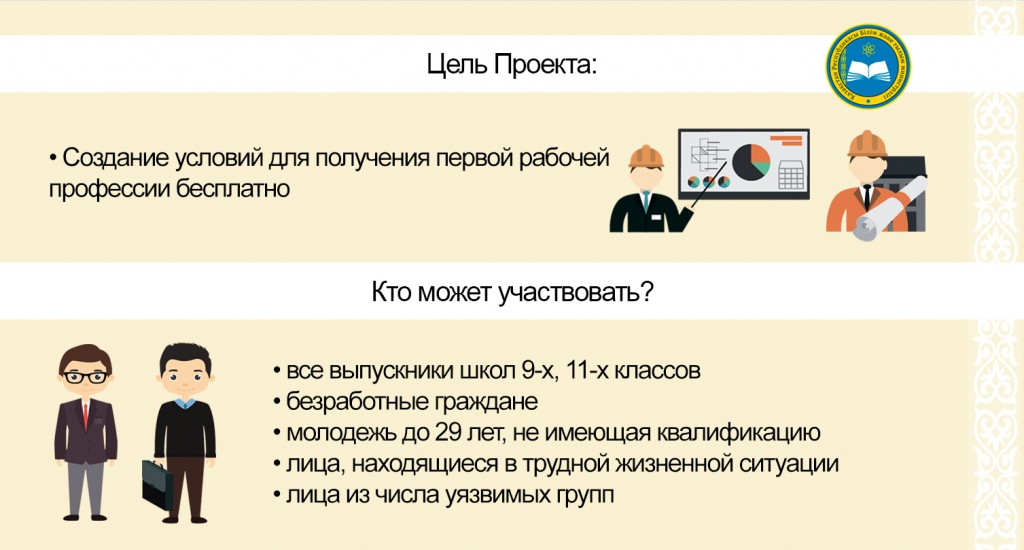ASTANA – More than 20,000 young people have the opportunity to get free vocational and technical education as part of the Productive Employment and Large Scale Entrepreneurship programme.
The project, approved by the government Dec. 26, was launched Jan. 1 by the Ministry of Education and Science. Financing totalling 118.8 billion tenge (US$$365.2 million) has been provided by the state, according to the ministry’s press release.
Forecasts indicate 40 percent of Kazakh students will obtain a blue collar job by 2021 and the proportion of unskilled labour will decrease to 20 percent. The unemployment is also expected to be reduced to 4.8 percent.
“We need to change our society and young people’s opinion about colleges. College is a complex of training and production processes with technology-equipped classrooms, workshops and laboratories that collaborate with leading manufacturers. The ministry implements large scale projects for equipping the colleges with material resources. The academic staff also use the practice-oriented teaching and learning methods,” Technical and Vocational Education Department head Nasymzhan Ospanova told The Astana Times.
Study ranges from one month to three and a-half years, with day and evening classes and distance learning. There is also a workplace education programme.
“It is important for young people to enter the colleges to obtain professional qualifications that will give them the opportunity to earn money and to find a good job. Colleges use the best learning experience. The students learn practical working skills from specialists in production,” she said.
Approximately 106,500 people will be attracted to the trainings from 2017-2021, with an annual reception of 21,000 applicants. In addition, 214,000 individuals will be involved in short-term training. The total programme will involve 320,500 people. A participant will be able to receive up to three qualifications as a stone dresser or tiler-bricklayer and continue his or her education to obtain the professional qualifications of middle managers as a technician-builder.
The ministry has been developing educational programmes focusing on the best international practices that include the ability to develop up to three related qualifications for the educational credit system. This will allow specialists to be in demand in the labour market and continue their studies after any period of time, if necessary.
The socially-vulnerable groups, including high school graduates not enrolled in educational institutions, members of low-income families, foster children, children from large families, orphans and those deprived of parental care and persons with disabilities living in minor’s adaptation centres, are the priority.
Students will be provided with scholarships in the four monthly calculated index (MCI), or 9,076 tenge (US$28), hot meals, travel expenses for the entire period of study and accommodation costs of five MCI per month, or 11,345 tenge (US$35) for short-term training.
Those who are unemployed, regardless of registration at the population employment centres, self-employed and young people under the age of 29 also can take part in the short-term vocational training. The programme will be held one to six months on a dual basis at colleges, training centres and military-technical schools.
Individuals from remote areas can also get a free professional education studying at the mobile training centres established in five pilot areas, including the Akmola, Aktobe, East Kazakhstan, Kostanai and Mangistau regions.
The required documents include a copy of one’s identity card, educational documents (a certificate or diploma), health certificate and, if available, a certificate confirming social status.
Employment centres will cooperate to find jobs for those who complete the training. The working group consisting of representatives from local education, employment and youth organisations and law enforcement will carry out explanatory campaigns and search for candidates at rural and urban local administrations beginning in March.
Regional commissions are set to make a list of colleges, professions and occupations. Regional education departments will sign an agreement on training with the colleges according to the commission’s results. Colleges with a license for educational activity and a three-year experience in the field of technical and vocational education are permitted to take part in the project.
Training in the technical, agricultural, technological and service sectors will be conducted by a modular programme with a two-level training model. The length of training depends on the chosen specialty.
The educational institutions, regional Chamber of Entrepreneurs and local administrations will provide all the necessary information.




